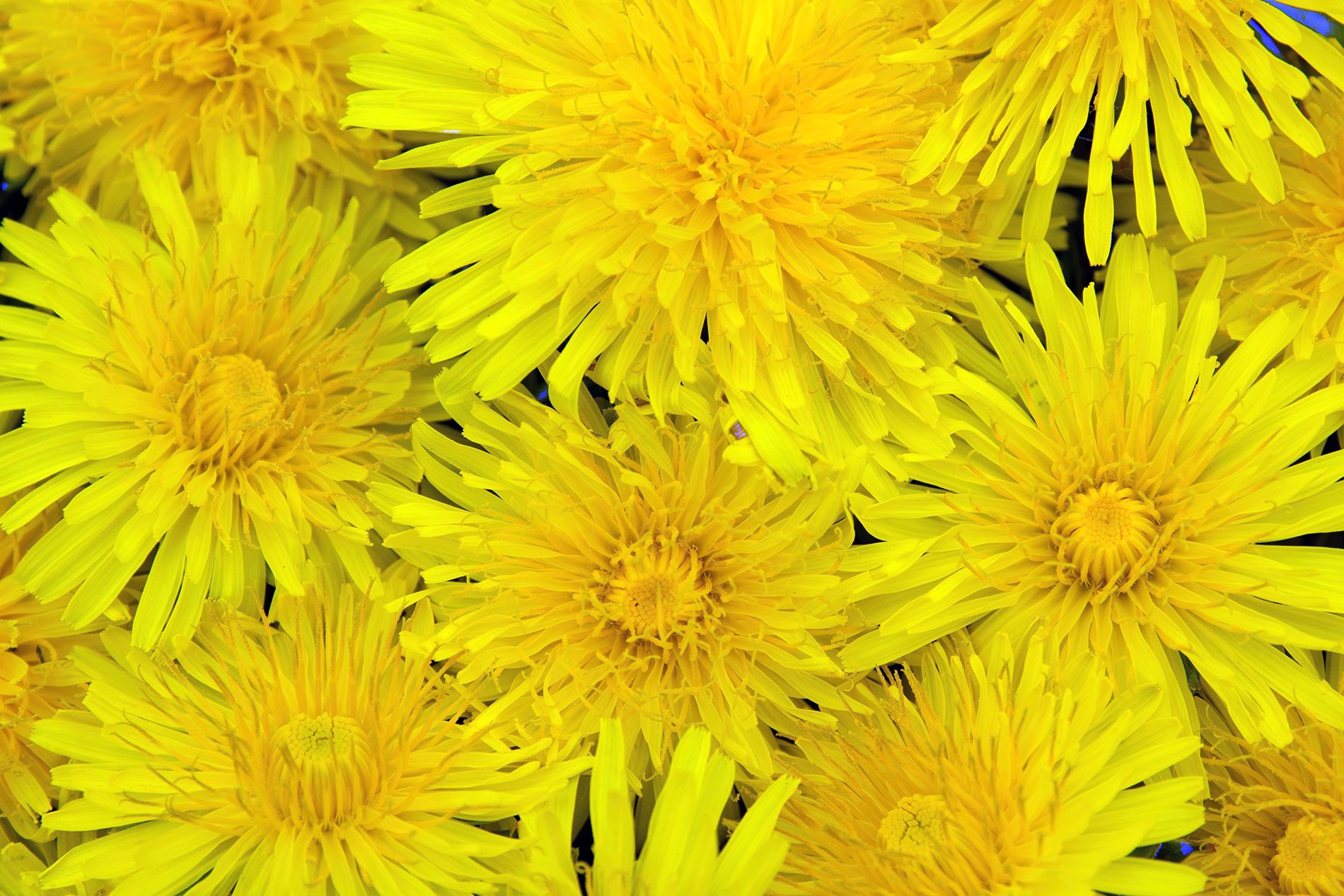Dandelion, the yellow-flowered weed that invades lawns and gardens, is often viewed as a nuisance by many. However, this “alien” plant has been used for centuries as a medicinal herb and food source, with a wide range of health benefits that are just beginning to be recognized in the modern era.
The dandelion plant, scientifically known as Taraxacum Officinale, is native to Europe, Asia, and North America. It is a member of the sunflower family and can grow up to 18 inches tall. Dandelions are easily recognized by their bright yellow flowers and fluffy white seed heads that scatter in the wind.
They captured our imagination throughout the years, being associated with wishes and dreams. When we were children, we used to blow on dandelions and make wishes, so that the seeds could carry them into the Universe in order to come true. These feathery puffballs inspired no less than 3 lamps design: by Swedish retailer Ikea, Italian designer Achille Castiglioni and Moooi, the luxury interior design brand from Netherlands.
Dandelions have been used for medicinal purposes for centuries, particularly in traditional Chinese medicine and Ayurveda. The leaves, roots, and flowers of the dandelion plant are all used to treat various health conditions. Dandelions are rich in vitamins A, C, and K, as well as minerals such as iron, calcium, and potassium.
9 potential health benefits of dandelions
Rich in antioxidants:
Dandelion extract are rich in antioxidants that help protect the body against free radicals, which are harmful molecules that can cause cell damage and lead to chronic diseases such as cancer and heart disease
Promotes liver health:
The dandelion root is known for its ability to support liver function by stimulating the production of bile, which helps to break down and remove toxins from the body.
Aids digestion:
Dandelion leaves and root can help improve digestion by stimulating the production of digestive juices and promoting the growth of beneficial gut bacteria.
Reduces inflammation:
Dandelions contain compounds that have anti-inflammatory properties, which can help reduce inflammation in the body and improve conditions such as arthritis and asthma.
Supports bone health:
Dandelions are a good source of calcium, which is essential for maintaining strong bones and teeth.
Lowers blood pressure:
Dandelion leaves contain compounds that act as a natural diuretic, which can help lower blood pressure by reducing the amount of sodium in the body.
Boosts the immune system:
Dandelions contain compounds that have been shown to boost the immune system by increasing the production of white blood cells.
Improves skin health:
Dandelions are rich vitamins A and C, which are essential for healthy, glowing skin. They also have anti-inflammatory properties that can help reduce skin irritation and improve conditions such as acne and eczema.
Dandelions can reduce cholesterol levels, ability researched in various studies.
- A study published in the International Journal of Molecular Sciences in 2010 found that dandelion root and leaf extract reduced total cholesterol, LDL cholesterol (the “bad” cholesterol), and triglycerides in rabbits fed a high-cholesterol diet.
- Similarly, in an animal study lasting for 4 weeks, it was found that the administration of dandelion leaf extract to rats led to a considerable decrease in the levels of total cholesterol and triglycerides.
How can you benefit from all these amazing properties?
- Eat the raw leaves in salads, make a pesto (just treat them like any other leave) or cook them like spinach.
- Make tea, leaves, flowers and roots, can all be used.
- Use dandelion supplements (extracts, teas, roasted root drinks) from a trustworthy brand and under the advice of a good naturopath.
Extra-hipster bonus: infuse your water with dandelion flowers and mint, not only it will look appealing, but you can set a trend among your friends. The flowers are rich in a type of antioxidants called polyphenols and by infusing them, all the benefits will transfer into the water.
Dandelions may be seen as a pesky weed, but they are actually a treasure trove of health benefits. Whether eaten as food or used in medicinal preparations, dandelions have been shown to promote liver health, aid digestion, reduce inflammation, boost the immune system, and improve skin health. So the next time you see a dandelion in your lawn, think twice before pulling it out – you might just be missing out on a wonderful health boost!
The dandelion is a tenacious plant that is able to grow in almost any environment. Its deep roots enable it to survive even the harshest conditions, making it a symbol of resilience and perseverance. It is also a plant that spreads quickly and easily, often taking over large areas of lawn or fields. This ability to spread and adapt to new environments makes it a symbol of rebellion and defiance.
We often associate the dandelion with hope, dreams, and play. As children, we delighted in blowing the seeds of the dandelion into the air, making wishes and watching the wind carry them away. The dandelion’s ability to spread its seeds in such a magical way reminds us of the power of imagination and the importance of dreaming big.
The dandelion’s persistence is a reminder that sometimes the things we try to control the most are the things that will ultimately resist our efforts.
Perhaps this is why we simultaneously love and hate the dandelion so much. It embodies qualities that we both admire and fear. It reminds us of the beauty and resilience of nature, but also of its ability to disrupt and challenge our attempts at control. It symbolises hope and dreams, but also chaos and unpredictability.
In the end, the dandelion is a complex and fascinating plant that has captured our imagination for centuries. It is a symbol of both rebellion and survival, hope and chaos. Perhaps it is this complexity that makes it so beloved and reviled at the same time. Whatever our feelings about the dandelion may be, one thing is certain: it will continue to thrive and fight, reminding us of the power of resilience and the importance of embracing life’s unpredictable nature.


















No Comments